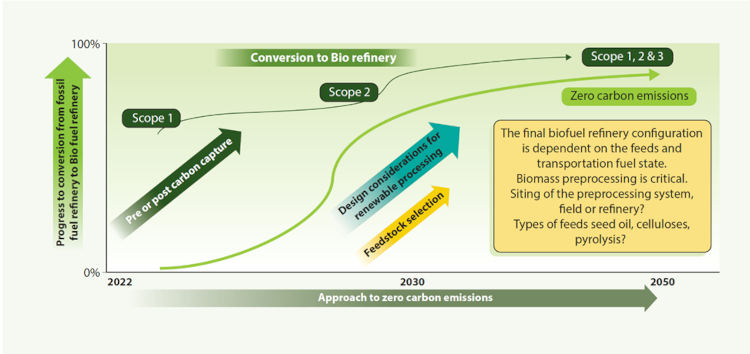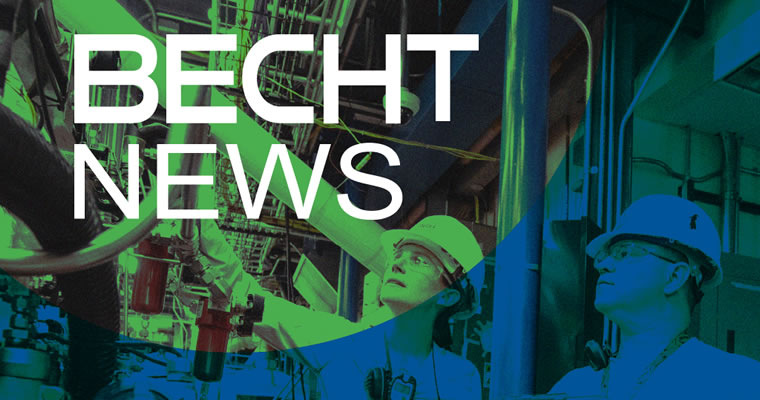Conversion To A Green Refinery
Article published in Decarbonisation Technology November Issue (digitalrefining.com)
Assessing the options, risks, and viability of the biofuels refinery of the future
In order to meet the mandates of the Paris accord, as well as carbon intensity and greenhouse gas emission reductions in traditional refining processes, fossil fuel-based transportation fuels will be substituted by a combination of electric vehicles, bio-derived, and renewable fuels. Existing refining and petrochemical assets are seen as key elements in the energy transition equation, as much of the current processing and distribution infrastructure can be repurposed for this new reality. This change in the marketplace will drive traditional refiners to examine processing and configuration options to align with the new feedstock and product profiles as well as energy input options. Those entities that are able to meet the changes in this dynamic market while remaining profitable will continue as viable enterprises.
This article will outline the various processing schemes, available technologies, feed and product possibilities, risk profiles, and optionality that exist to assist energy firms in their decision making process. In addition, the impacts and requirements on the utility and logistics systems will be addressed, as these areas not only offer further opportunities to meet sustainability targets but, if not managed properly, can also adversely affect a project’s operational viability. A series of use cases, along with real world experience, will be used to examine various scenarios and provide key learnings to energy entities.
To access the full article, click here: Conversion to a green refinery.





